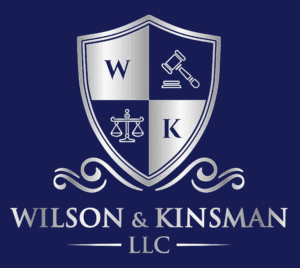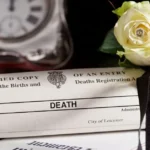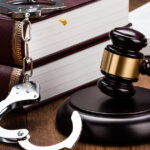Establishment Injuries Need Immediate Legal Help!
You know how crucial it is to fix problems quickly if you’ve ever tripped on a slippery grocery store floor or a broken step at a friend’s house. To preserve your rights, see a negligent maintenance attorney in Elkhart, IN. Various accidents caused by improper or negligent property maintenance can leave innocent people with injuries and high medical expenses.
Premises liability covers property owners and managers’ negligence in maintaining their properties. This negligence can include failing to repair or replace damaged handrails, slick surfaces, broken steps, or other hazards on their property that can cause accidents and injuries. When property owners fail to provide care and someone is injured, they may have a premises liability claim.
If you or a loved one was injured by faulty or negligent property maintenance, don’t hesitate to seek justice. Discuss your legal options with Wilson & Kinsman LLC’s Elkhart, IN negligent maintenance attorney to get the reimbursement you deserve. Our expert legal team will help you hold negligent property owners accountable and recover compensation for medical bills, lost wages, and pain and suffering. Contact us immediately to schedule a consultation and start seeking justice.
What is Improper or Negligent Maintenance?
Improper or negligent maintenance happen when property owners and managers who neglect their properties create dangerous circumstances that can cause accidents and injuries. This negligence may include not reporting hazards. Property owners may be liable for injuries caused by their carelessness in providing safe conditions for guests.
What are the Different Types of Negligence?
Negligence can take various forms, each with its own set of consequences and potential legal implications. Here are some different types of negligence:
- Standard Negligence: This most prevalent form type of negligence, where a person fails to take reasonable care and causes harm to another person or their property.
- Gross Negligence: This is an extreme form of negligence where an individual’s actions or inactions are reckless or irresponsible, exceeding simple negligence. It generally involves ignoring others’ safety and well-being.
- Professional Negligence: This refers to when professionals, such as doctors, lawyers, or accountants, fall short of the required level of care or service in their disciplines.
- Comparative Negligence: This type recognizes that numerous parties engaged in an event may have differing degrees of fault. Parties’ fault proportions decide compensation in such circumstances.
- Vicarious Negligence: this is known as “imputed negligence,” occurs when one person is held responsible for the negligence of another, typically in an employment or agency connection.
- Res Ipsa Loquitur: “The thing speaks for itself,” referring to accidents that would not have occurred without negligence. It provides a simply incident-based inference of negligence.
- Negligence Per Se: This refers to a violation of a law or statute that causes injury. Since the law requires care, negligence is presumed.
What are the Keys to a Negligent Maintenance Case?
Several criteria can establish liability and gain compensation for the injured party in a negligent maintenance lawsuit. Here are the essentials of negligent maintenance:
- Duty of Care: A strong case requires proving that the property owner or manager had a duty of care to the injured party. It usually entails keeping guests and visitors safe.
- Breach of Duty: The next stage is to prove that the property owner or manager broke their duty of care. This involves proving they neglected the property, causing hazards.
- Causation: To establish causation, the plaintiff must prove that the breach of duty directly caused their injuries. This may require proof that the hazardous condition caused the accident.
- Notice: It is crucial to prove that the property owner was aware of the hazardous state. This may require proving the hazard existed for a long time without being addressed.
- Injuries and Damages: This refer to the extensiveness of the injuries and damages suffered by the plaintiff.
- Comparative Negligence: Recognizing and addressing any comparative negligence by the injured party or other parties involved in the event is critical. Understanding fault allocation affects compensation.
Who is at Fault for a Negligent Maintenance Case?
Inadequate maintenance can be caused by several things, and the cause depends on the scenario. The following parties may be responsible for inadequate maintenance:
- Property Owners: In many circumstances, property owners are responsible for maintaining their properties. They may be accountable for poor maintenance if they ignore recognized hazards or scheduled maintenance.
- Property Managers: In cases where a property owner assigns maintenance duties to a property management business, the manager may be held responsible for failing to properly maintain the property.
- Contractors and Service Providers: Property maintenance contractors and service providers may be held responsible for shoddy work or failure to complete necessary repairs.
- Tenants: In some circumstances, tenants may share responsibility for a property. They may be responsible for poor upkeep if they cause damage or don’t notify issues to the property owner or manager.
- Government Entities: When it comes to public or government-owned properties, the responsible government entity may be held liable for poor upkeep if they fail to ensure public safety.
- Third Parties: When other people cause damage or hazards to a property, they may be at responsibility. If a vehicular accident damages a building, the at-fault driver’s insurance may cover the property’s poor maintenance.
Determining responsibility in inadequate maintenance generally requires a comprehensive evaluation of the duty of care, the breach, and the injury. If you suspect you’ve been affected by inadequate property maintenance, you should consult with a negligent maintenance attorney in Elkhart IN to examine the matter and explain your rights.
What is Indiana’s Premises Liability Law?
Indiana’s premises liability law governs the legal responsibilities of property owners and occupants regarding injuries that occur on their premises. Under this law, property owners and occupants have a duty to maintain a reasonably safe environment for visitors and guests. If someone is injured on their property due to negligence, such as a hazardous condition or lack of proper maintenance, the property owner or occupant may be held liable for the injuries sustained.
What is the Statute of Limitations in Indiana?
The statute of limitations for personal injury cases in Indiana is generally two years from the date of the injury or accident. This means that individuals who suffered a personal injury, including injuries resulting from slip and fall accidents, car accidents, or other incidents, had two years from the date of the injury to file a lawsuit against the responsible party.
What is Indiana’s Law Regarding the Discovery Rule?
The discovery rule permits a plaintiff to sue within a specific timeframe from the day they found or should have reasonably discovered their injury or its cause, not the date it occurred.
What is the Law In Indiana for Premises Liability Involving Minors?
If specific requirements are met, the Indiana Code holds property owners accountable for minor trespasser injuries. If the property owner maintains a dangerous condition on their property that is appealing to children, such as a trampoline, and it is reasonably foreseeable that trespassing children will be drawn to it, they may be liable for any injuries. Children are vulnerable, thus property owners must take reasonable efforts to safeguard them from foreseeable harm, even if they are trespassing.
What is Comparative Negligence in Indiana?
Indiana follows a modified comparative negligence system in personal injury cases, including cases of premises liability and slip and fall accidents. It is a legal doctrine used to allocate fault and determine compensation when multiple parties are involved in an accident or injury. Here’s how it typically works in Indiana:
- 50% Bar Rule: Indiana follows the “50% bar rule.” An injured party can seek damages from another party if their own responsibility is less than 50%. Thus, if the wounded individual is 51% or more at fault for the accident, they may be excluded from receiving compensation from others.
- Proportional Liability: In proportional liability cases, the court assigns a percentage of fault to each party involved in an accident, including the wounded party if applicable. Parties pay damages based on their fault percentage.
If the property owner is 80% at blame for a slip and fall accident and the injured person is 20% at fault, the property owner would pay 80% of the injured party’s damages.
What Damages can I Collect in an Improper and Negligent Maintenance Case?
If you can prove property owner or responsible party liable for inappropriate and negligent maintenance, you may be able to recover damages. The circumstances and severity of your injuries will determine your damages. Examples of common damages:
Economic Damages: These are damages that catergorically falls under quantifiable damages related to the injury sustain.
- Medical Expenses: This refer to medical related cost by the expense because of the injury.
- Lost Income: This damages refers to the missed work or reduced earning capacity and future lost earning because of the injury.
- Property Damage: If your personal property, such as clothing or belongings, was damaged in the incident, you may be eligible for reimbursement for repairs or replacements.
Non-economic Damages: These are damages that catergorically falls under non quantifiable in nature.
- Pain and Suffering
- Loss of Consortium
Punitive Damages: In exceptional situations, punitive damages may be given to punish the perpetrator and deter future irresponsible or purposeful acts.
Damage availability and computation depend on state laws and case facts. Your circumstances and local regulations should be discussed with a negligent maintenance attorney in Elkhart IN to evaluate your damages and navigate the legal process.
Wrongful Death in Premises Liability
In premises liability, wrongful death occurs when a person is injured on another’s property due to the owner’s carelessness or failure to maintain safety. Property owners or occupants are liable for injuries or deaths caused by hazardous circumstances. When such conditions cause death, wrongful death lawsuits can result.
Call our Negligent Maintenance Attorney in Elkhart IN Now!
Most businesses operate just to meet people’s wants and simplify their lives. Every owner must prioritize comfort, convenience, and property safety. Negligent maintenance or handling can cause life-altering damage. Contact an Elkhart IN negligent maintenance attorney immediately if this describes you.
The Elkhart IN negligent maintenance attorney at Wilson and Kinsman LLC is dedicated to helping clients seek compensation for their injuries and hold the negligent accountable. For more than 50 years, Wilson and Kinsman LLC has been providing clients with legal help in areas including vehicular accidents, product liability, and wrongful death
Spend no time waiting. Personal injury and premises liability cases require speed! Contact Wilson and Kinsman LLC’s Elkhart IN negligent maintenance attorney now. Let us get you justice and help you stand tall!
Give us a call!
Testimonials
Read what our former clients have to say:




